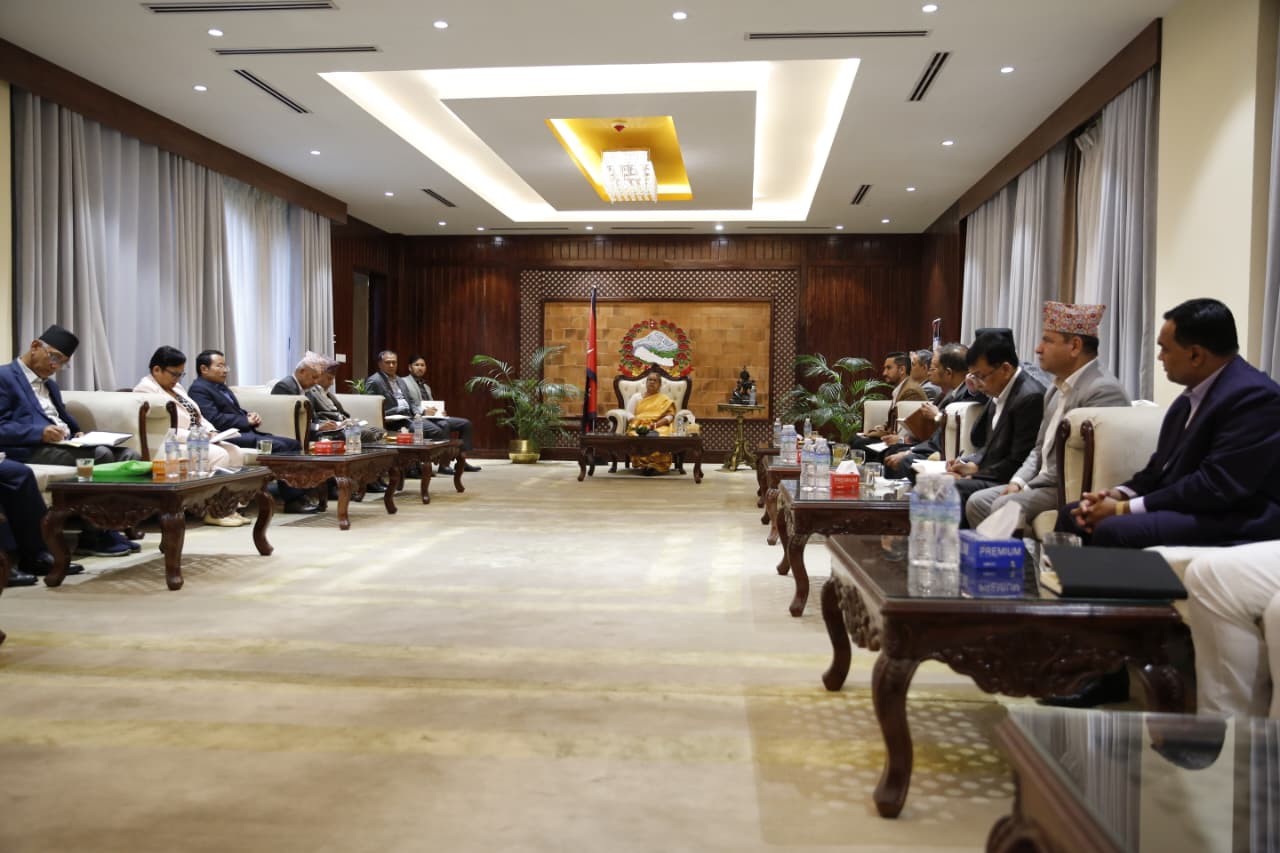

KATHMANDU: The government led by Sushila Karki and CPN (UML) have each stepped back slightly to open formal dialogue.
A month and a week after the formation of the interim government, Prime Minister Karki has invited political parties from the dissolved House of Representatives for talks.
The meeting, held at the Prime Minister’s official residence in Baluwatar, was attended by UML General Secretary Shankar Pokharel and Deputy General Secretary Pradeep Gyawali.
UML Chair KP Sharma Oli has long called the Karki-led interim government unconstitutional, saying it was “born of fire, not of the constitution.”
The interim administration, composed of non-political figures, was formed after protests on September 8–9 forced Oli to resign.
The new government was formed on Oli’s own recommendation as caretaker prime minister. On Karki’s advice, President Ram Chandra Paudel dissolved the House of Representatives and announced fresh elections for March 5, 2026.
The UML, however, has rejected the move as unconstitutional and demanded the House’s reinstatement.
Political analyst Geja Sharma Wagle described the initiation of talks as a “positive step.” “There was visible confrontation between the government and the UML. But both sides have taken a step back to begin dialogue. The process that began under the President’s mediation is now continuing,” he said.
Wagle added that it was a good sign that the government has started work toward creating an electoral environment, though a fully credible atmosphere has not yet been achieved.
President Paudel had earlier convened an all-party meeting on October 10 to start broader consultations between the government and political forces.
Tensions had escalated after the government moved to take action against UML Chair Oli.
Based on the recommendation of a commission formed to probe the September 8–9 incidents, the government restricted Oli from leaving the Kathmandu Valley and froze his passport.
Oli rejected the commission’s legitimacy, warning that “no one can stop me from leaving the Valley.”
The UML Central Committee meeting held from October 15 to 17 denounced what it called a government attempt to arrest Oli.
“The government is maliciously trying to prosecute our party chair under false charges and have him arrested by any means,” read the party’s October 17 statement.
The same meeting also decided to launch a movement for the reinstatement of the House, declaring that elections announced for March 5 could not take place under current conditions.
“The current situation, in which neither elections can be held nor the House exists, has created a grave political vacuum and instability,” the UML statement said. “Therefore, this Central Committee meeting demands that the unconstitutionally and undemocratically dissolved House of Representatives be reinstated. Only that can bring the nation back to the path of democracy.”
Other political parties, however, have continued to stress the importance of holding elections.
Political analyst Mumaram Khanal said initial fears that the Karki-led government might avoid political dialogue have now been dispelled.
“There was concern that this leadership might not engage in political dialogue, but that fear is gone now. It’s a positive signal for the days ahead,” he said.
Khanal also argued that the UML’s push for reinstatement was mainly for public consumption. “Such strong reactions are expressions of political anxiety,” he said. “Even if the parliament were reinstated, it would not legitimize such a massive uprising. The parties have no alternative but to go to elections. Only a fresh mandate can restore their legitimacy, not a reinstated House.”